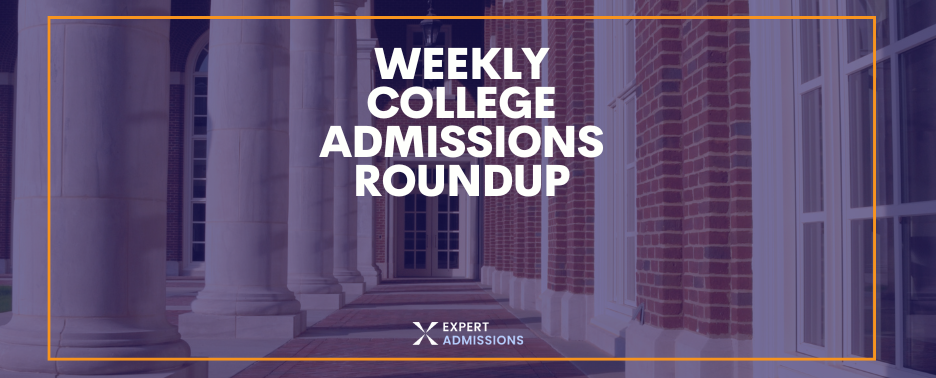
This week, UT Austin tightens its admissions cutoff, Notre Dame goes need-blind, admissions rates are rising, Dartmouth invests in campus housing, and Wesleyan’s president decries institutional neutrality.
The University of Texas at Austin will automatically admit in-state applicants in the top 5 percent of their high school classes this year. The previous threshold was 6 percent. Most public universities in Texas are required to admit the top 10 percent of Texas high-school graduates, but UT Austin is allowed to set its own threshold.
The University of Notre Dame will begin admitting both domestic and international students without evaluating their financial need, and will meet students’ full demonstrated need without including loans. Notre Dame will be one of only nine highly selective colleges and universities with a need-blind admissions policy.
College admissions rates have been rising since 2018, according to a recent analysis, and most colleges–including many selective colleges–accept a larger share of applicants today than they did two decades ago. Not every college has followed the trend; admissions rates have fallen at Ivy League institutions.
Dartmouth College will invest $500 million in undergraduate student housing, aiming to provide enough on-campus housing options for over 90% of undergraduate students. Currently, 85% of undergraduates live on campus. Dartmouth is also modernizing some existing residence halls by transitioning to more sustainable heating.
Wesleyan president Michael Roth spoke out against Harvard University’s new neutrality policy, whereby the university and its leaders are expected to refrain from making statements on controversial public policy issues. Roth told CNN that college leaders should take part in political conversations, and that for leaders not to share their opinions is “an educational disservice at best.”
Leave a Reply